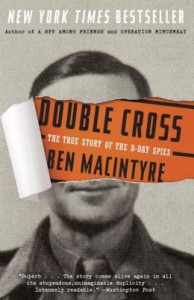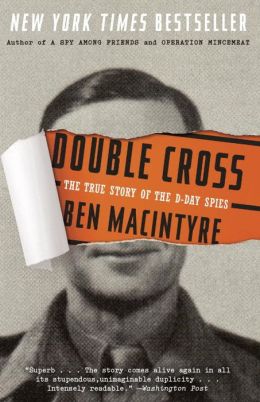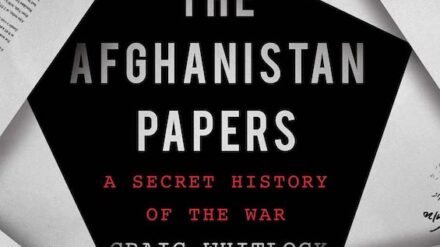
Estimated reading time: 6 minutes
Americans’ views of the Second World War have been dominated by films, books, and television specials about the role that U.S. troops played in the fighting. Even today, more than half a century after the war ended, we tend to believe that it was our ingenuity and industrial might and the sheer guts and persistence of American soldiers and sailors that defeated Nazi Germany — and, to borrow a phrase from the preceding Great War, “made the world safe for democracy.” This is just one of a great many signs of our insularity and the widespread belief in the so-called exceptionalism of our nation.
However, serious historical studies have long since established the truth that Stalin’s Soviet Union carried a much larger burden than ours. It was the German defeat at the monumental Battle of Stalingrad (July 1942 – February 1943) that was the true turning point in the European war. That victory alone cost the Red Army more than 1.1 million casualties; in the war as a whole, 26.6 million Soviets died. (U.S. deaths totaled 418,500.) And research in more recent years, as hitherto secret archives have been opened to the public, has revealed the seminal role of the British Secret Intelligence Services, both MI5 (counterespionage) and MI6 (foreign intelligence) that made possible the success of the U.S.-led Normandy Invasion on D-Day (June 6, 1944).
Double Cross: The True Story of the D-Day Spies by Ben MacIntyre (2012) 450 pages ★★★★☆
The women and men of Operation Double Cross
If you have even a cursory knowledge of World War II, you’re probably familiar with the names George Patton, Omar Bradley, and Dwight Eisenhower. It’s highly unlikely, however, that you’ve ever come across any mention of Elvira Concepcion Josefina de la Fuentes Chaudoir, Roman Czerniawski, Lily Sergeyev, Dusko Popov, Juan Pujol Garcia, and Johnny Jebsen. In their own way, these six European double agents who were “turned” or recruited by the British played roles as large as those of any American general in the success of the invasion that opened up the Western Front. The action in which they were involved was called Operation Double Cross.
Because British intelligence, working through these six extraordinary individuals in the Double Cross System, managed to mislead the Germans about the date and place of the invasion, McIntyre writes, it “was a military sucker punch. Senior German commanders were not only unprepared but positively relaxed.” Everyone in a key position on the Nazi side, including Hitler himself, had bought the elaborate deception that kept powerful German forces locked up elsewhere.
They expected Anglo-American invaders in Norway, the French Atlantic coast, and, most of all, in the Pas de Calais peninsula in Northern France, convinced that the Normandy action was simply a diversion. As we all know, of course, the real Normandy invasion was a desperate and bloody battle nonetheless, anything but a certain victory for the Allies. Eisenhower and Montgomery, who led the invasion force, later acknowledged that if the Germans hadn’t been fooled, if they had reinforced their troops on the line in Normandy, the invasion might well have ended in a massacre of Allied troops.
“One of the oddest military units ever assembled”
As Ben MacIntyre writes in Double Cross, “the D-Day spies were, without question, one of the oddest military units ever assembled. They included a bisexual Peruvian playgirl [who was heir to a guano fortune], a tiny [and fanatically patriotic] Polish fighter pilot, a mercurial Frenchwoman [who loved her little dog Babs more than any person], a Serbian seducer, . . . a deeply eccentric Spaniard with a diploma in chicken farming,” and a Danish-German Anglophile whose sideline business of currency and commodity manipulation would have put Catch 22‘s Milo Minderbender to shame. What is most astonishing about the highly unlikely stories McIntyre tells in this detail-filled account is that they’re all true.
Operation Double Cross was vastly complex
Double Cross is MacIntyre’s third book about British intelligence during World War II. His previous books — Operation Mincemeat (reviewed here) and Agent Zigzag — relate equally improbable exploits, which are nonetheless also completely true. The earlier books, both bestsellers, were fascinating to read, filled with all the tension of superior thrillers. In Double Cross, McIntyre attempts to tell a vastly more complex tale, encompassing a veritable army of characters, both British and German, and a bewildering sequence of interconnected events. He comes up short. There’s simply too much going on for any but the most retentive reader to follow all six threads. I was nearly two-thirds of the way through the book before I could even keep all the spies straight, let alone the ever-changing cast of their handlers on both sides.
Although Double Cross is a little difficult to follow at times, it’s still a thoroughly enjoyable and often surprising read. You can be the life of any party for months, retelling the story of the British carrier pigeons who played a special role in Operation Double Cross, or the one about the Spanish chicken farmer working for MI5 who fabricated the identities of an army of sub-agents, fed the Abwehr with thousands of pages of entirely fictitious reports — and received a German Iron Cross for his courageous and resourceful efforts to defend the Fatherland.
For related reading
This book is a runner-up to the 10 top WWII books about espionage.
I’ve reviewed the author’s A Spy Among Friends: Kim Philby and the Great Betrayal (Was Kim Philby the greatest spy ever?).
Previously I’ve reviewed a number of books on closely related topics:
- Rogue Heroes: The History of the SAS, Britain’s Secret Special Forces Unit that Sabotaged the Nazis and Changed the Nature of War, by Ben MacIntyre—The story of the original special forces
- D-Day Girls: The Spies Who Armed the Resistance, Sabotaged the Nazis, and Helped Win World War II by Sarah Rose—The women who parachuted behind German lines and helped secure the Normandy landing
- Madame Fourcade’s Secret War: The Daring Young Woman Who Led France’s Largest Spy Network Against Hitler by Lynne Olson—The truth about the French Resistance, dug out of old records
- The Nightingale by Kristin Hannah—A deeply affecting novel of the French Resistance
- A Hero of France (Night Soldiers #16) by Alan Furst—Vive la Resistance!
- Agent Sonya: Moscow’s Most Daring Wartime Spy by Ben MacIntyre—The extraordinary Soviet spy who gave Stalin the bomb
- Operation Mincemeat: How a Dead Man and a Bizarre Plan Fooled the Nazis and Assured Allied Victory by Ben MacIntyre—How the Allies fooled the Nazis with a corpse
I’ve also reviewed The Ghost Army of World War II: How One Top-Secret Unit Deceived the Enemy with Inflatable Tanks, Sound Effects, and Other Audacious Fakery by Rick Beyer and Elizabeth Sayles (An entertaining account of deception in World War II).
You might also be interested in 10 top nonfiction books about World War II and The 10 best novels about World War II.
And you can always find my most popular reviews, and the most recent ones, plus a guide to this whole site, on the Home Page.


























